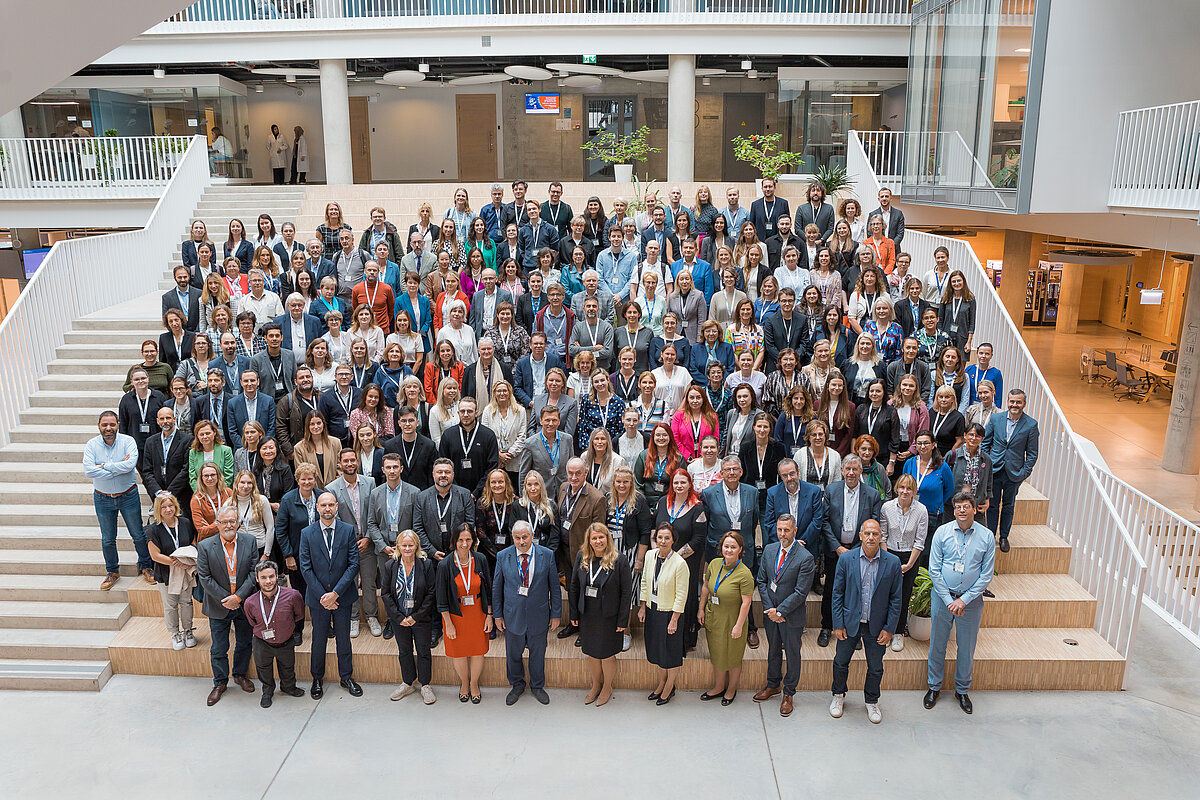
Photo: Toms Grīnbergs, UL
It was crucial for the European Joint Action on Cancer Screening (JA EUCanScreen) project, dedicated to strengthening cancer screening systems throughout Europe. The project's goal is to save lives by detecting cancer early. The event highlighted the project's main objective: to reduce the mortality rate from cancer by improving screening practices and promoting collaboration among European countries.
From September 24 to 27, 2024, more than 80 organizations and 200 participants from 28 European countries gathered at the University of Latvia's Science House in Riga to share insights and strategies. Project coordinators, led by Mārcis Leja from the University of Latvia's Faculty of Medicine and Life Sciences Clinical and Preventive Medicine Institute (referred to as LU KPMI), successfully organized the main sessions, ensuring a productive week in the fight against cancer.
Apostolos Vantarakis, one of the project's key leaders, emphasized, "Cancer is different in each country," pointing to the need to tailor strategies to regional contexts.
Mārcis Leja, director of LU KPMI, underscored Latvia's role: "Our biggest challenge is to successfully manage the project throughout its implementation period and achieve the project's goals on a European scale. However, with this project, we also want to make significant progress specifically in Latvia—bringing cancer control closer to the level of more developed countries by revitalizing existing breast, cervical, and colorectal cancer screening programs and preparing for the implementation of new, cost-effective, and high-quality lung, prostate, and stomach cancer screening programs, as well as developing the training center infrastructure established within the project."
Throughout the week, several significant discussions took place, including on:
● The role of innovation in cancer screening, highlighting new technological solutions such as artificial intelligence that improve early cancer detection.
● Cross-border collaboration, discussing how countries can share best practices to build stronger and more effective screening systems.
● Improving data collection and resource allocation to ensure more equitable access to cancer screening across Europe.
In a session led by one of the project leaders, Urška Ivanuš from Ljubljana (Slovenia), it was emphasized: "We will implement screening programs that will lower cancer mortality rates." Her statements align with the broader theme of the event, highlighting the necessity of systematically improving cancer screening to ensure better outcomes for citizens of various countries.
Iris Lansdorp-Vogelaar, a senior expert at ERASMUS MC and one of the project leaders, stressed the importance of screening frequency, noting: "The frequency of screening is closely related to the number of deaths from cancer. The more regularly screening is conducted, the greater the chances of saving lives."
Statistics show that timely cancer detection significantly increases survival rates, but equitable access to screening has yet to be implemented across Europe. One of EUCanScreen's goals, therefore, is to ensure more accurate data collection to improve resource allocation and expand access to screening.
As part of its mission, EUCanScreen representatives will continue to urge healthcare policymakers and representatives of medical organizations to support this essential work.

Views and opinions expressed are however those of the author(s) only and do not necessarily reflect those of the European Union or HADEA. Neither the European Union nor the granting authority can be held responsible for them.
 CONFERENCE
CONFERENCE



